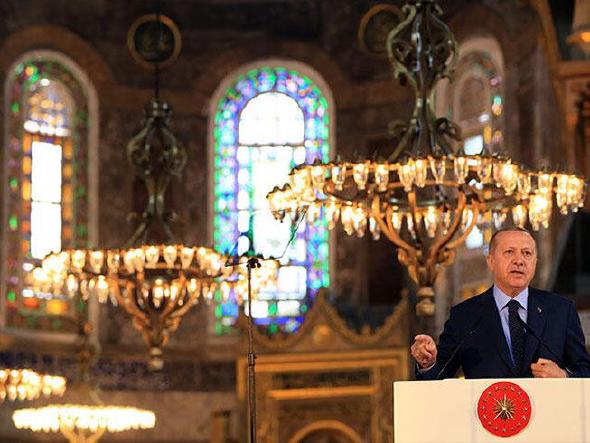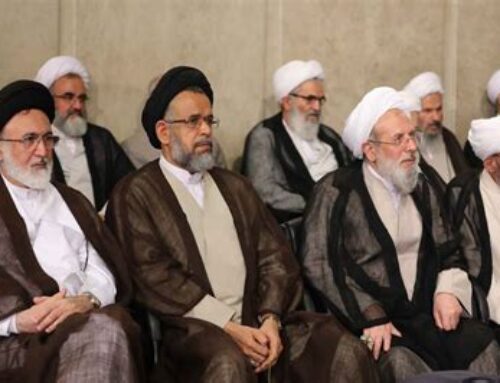The government of President Recep Tayyip Erdoğan (pictured reciting Islamic prayers at Hagia Sophia) has been accused of institutionalized discrimination against Christians.
I wonder how many people are aware of the U.N. Human Rights Council. A sham of a gathering. The so-called human rights council is comprised of 47 member states.
Here are some of those key players, hypocrites, despots, godless nations, and people who determine who is and who isn’t violating “human rights” around the world;
Communist China
Russia
Pakistan
India
Libya
Somalia
Burkina Faso
Sudan
India
Bahrain
Cameroon
Bangladesh
Indonesia
Saudi Arabia
United Arab Emirates
Cuba
Venezuela
Egypt
Burundi
Malawi
and…
Rwanda
To name but a few of the godless, or communist, or totally Islamist, or completely in violation of human rights and any freedoms in their countries. And these are the nations entrusted to oversee “human rights” matters around the world.
Kind of like taking your children to the Hannibal Lecter Daycare Centers, eh? Or having Adolf Hitler, Pol Pot, and Stalin as the pastors of your church?
As for Turkey? Who has been on the U.N. Human Rights Council and is campaigning to be elected to that lying godless evil hypocritical diseased body again?
If unfamiliar; WHAT TURKISH ISLAMISTS DO TO CHRISTIANS — Then, and now… Armenian Genocide,and Armenian Genocideand,10 FACTS ABOUT THE ARMENIAN GENOCIDE
Link to video
Recep Tayyip Erdoğan and the Islamist country of Turkey have been and continue to persecute Christians and are escalating this persecution. And the world sits numb, silent, blind, and idle.
Those who do not learn from history are most certainly doomed to repeat it — because the evil nature of man, the hatred of God, the hatred of Jesus, the hatred of the Bible, the hatred of Christians has never waned and will only increase in these last of the last days.
Ken Pullen
Friday, May 28th, 2021
ACP — A Crooked Path
U.N. Human Rights Committee Urged to Act Over Christian Persecution in Turkey
May 24, 2021
Reprinted from Barnabas Aid
The four groups – European Evangelical Alliance, World Evangelical Alliance, Middle East Concern, and the Turkish Association of Protestant Churches – cite examples of institutionalized discrimination, particularly against Protestant Christians.
Their report poses a series of questions the UNHRC should ask of Turkey, including queries about what measures are in place to support fair procedures for pastors faced with deportation, what routes are available for churches to seek legal recognition, and what steps have been taken to ensure that individual Christians can freely practice their faith.
The report notes Turkey’s own legal guarantee of freedom of religion (Article 24 of the Turkish constitution) as well as that of the International Covenant on Civil and Political Rights (ICCPR), to which Turkey is a signatory.
Turkey, however, has declared an exception to Article 27 of the ICCPR, which is intended to guarantee the rights of minorities to practice their own religion, an exception that the report argues results in Protestant Christians “being [marginalized] and subject to the whims of national and local authorities.”
Refusal to Recognize Churches and Church Meeting Places
Churches in Turkey are often prevented from obtaining legal recognition as a “religious congregation” or from having church buildings and meeting places officially recognized as places of worship.
Many historic church buildings have, the report explains, “been appropriated by the state,” with unregistered churches refused access. At the same time, local authorities often refuse to grant official recognition to alternative venues.
The report also cites the travel restrictions and deportations imposed on overseas pastors and church ministers in what it refers to as a “systematic campaign to label foreign Protestants as security threats.”
In February, Pastor Michael Feulner, a German citizen who has worked in Turkey for more than 20 years, was threatened with deportation on the grounds of national security. Since early 2019, approximately 70 overseas Christians have been expelled from Turkey as threats to national security.
This official attitude toward pastors from overseas creates particular problems for Turkish congregations given that “Turkish legislation does not make provision for the training of Christian clergy either in private establishments for higher religious education or through the public education system.”
Suspicion and Hostility
This situation is caused by an ingrained suspicion and hostility toward Christians, especially Protestants, which is encouraged by the Turkish government.
“Protestantism is seen as a Western and alien construct,” explains the report, “and continues to be viewed with suspicion by Turkish society at large.”
The report gives the example of the Turkish school curriculum, in which Christian evangelism and missionary activity is viewed as a threat to Turkish culture and a national security threat.
The population of Turkey is 99% Muslim, the majority of whom are Sunni. Islam is a strong part of Turkish identity. Protestants are mainly converts from Islam or the children and grandchildren of converts. The wider Christian community is ethnically non-Turkish and is historically Christian, descended from those who converted to Christianity many centuries ago, some even from the first century; they still bear the trauma of the Armenian, Assyrian, Syriac and Greek genocides of the early 20th century, in which at least 3.75 million believers were killed by Ottoman Turks.
Turkey’s President, Recep Tayyip Erdoğan, is increasingly open about his ambitions to spread Turkish Islamic influence, as if to re-establish the Ottoman Empire. In summer 2020 Erdoğan ordered two historic buildings in Istanbul – Hagia Sophia and The Church of the Holy Saviour – originally Christian churches, then mosques, and later museums, to be turned back into mosques.
In March, a report from the U.S. Department of State confirmed the role of Turkey in supporting Azerbaijan’s war against ethnic Armenians in Nagorno-Karabakh.
In April, the United States Commission on International Religious Freedom (USCIRF) added Turkey and Azerbaijan to its special watch list for “engaging in or tolerating severe violations of religious freedom.”







Leave A Comment
You must be logged in to post a comment.